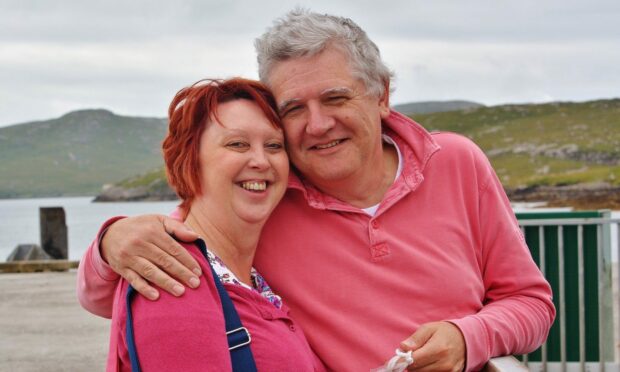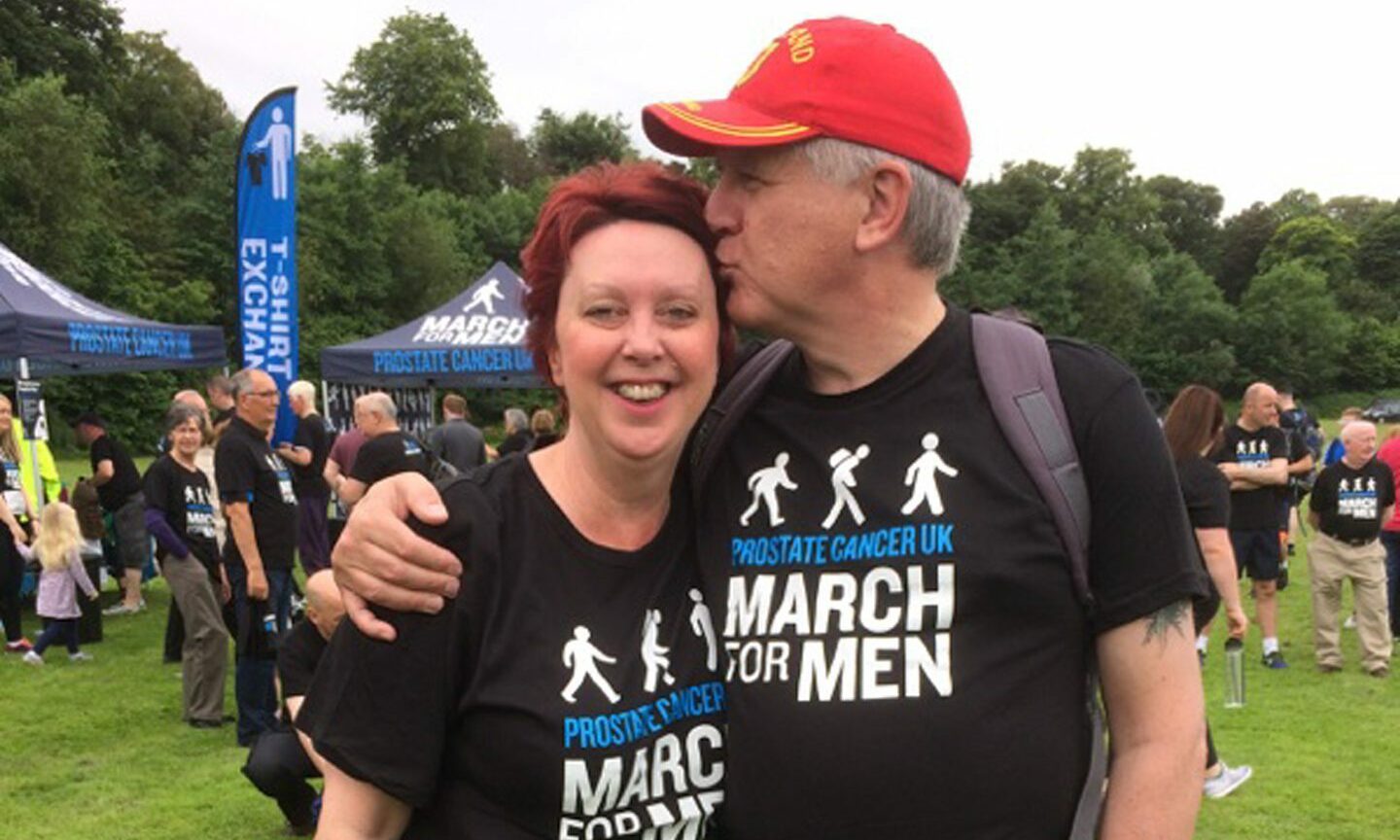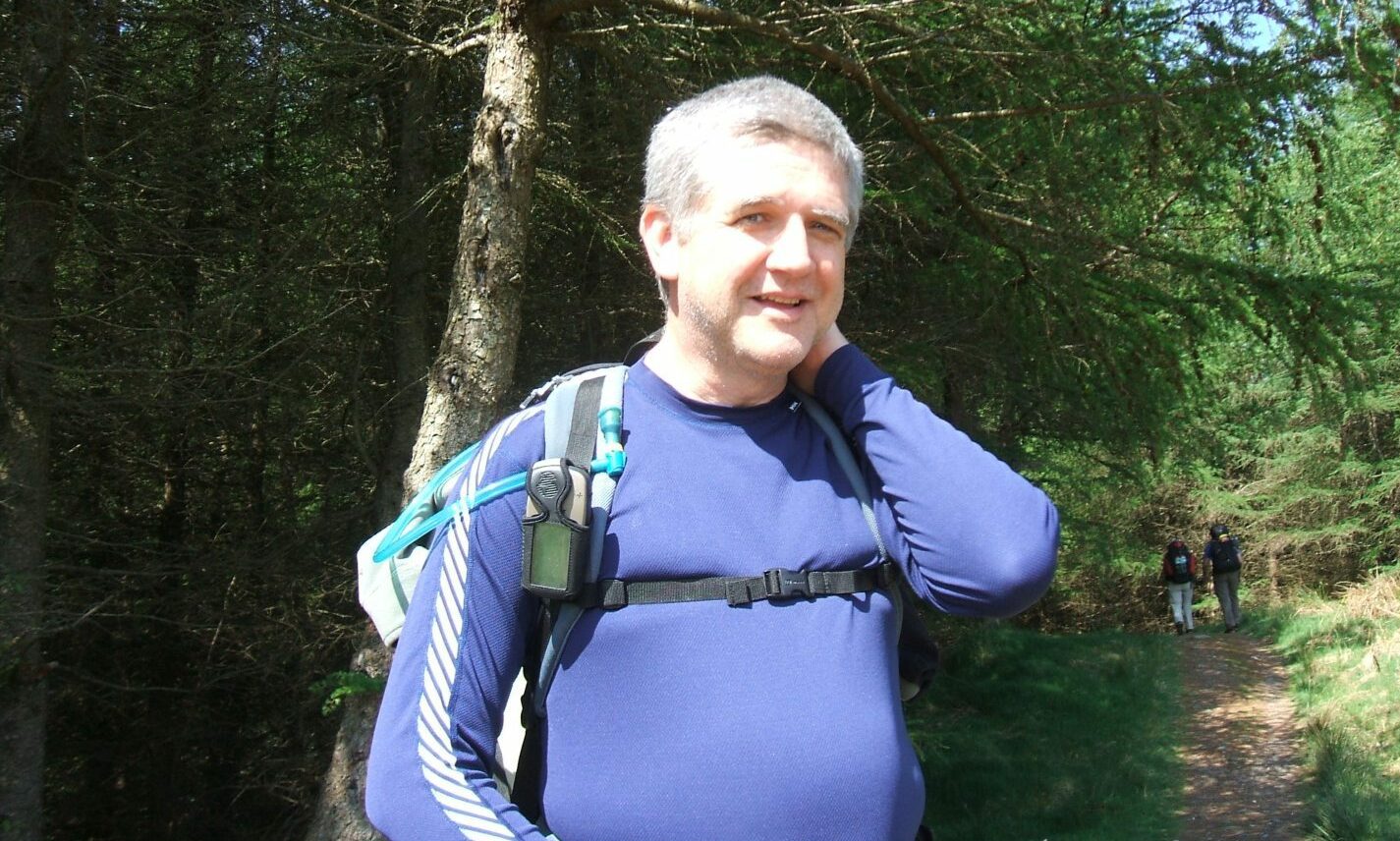A Barra man is urging others to be aware of the risks of prostate cancer, after unknowingly suffering one of the hallmark symptoms of the illness.
Brian Whitters said the disease wasn’t even “on his radar” – let alone the fact he was at a greater risk of it.
And the 64-year-old is speaking out to help more men get diagnosed early to give them the best chances at survival.
Shock at prostate cancer prospect
In September 2015, Brian found himself regularly getting up in the night to visit the toilet.
He’d usually make three or four trips at least – with the constant disruption leaving him exhausted.
“I had no idea what was going on,” he said.
Brian was living in Reading, west of London, at the time and booked an appointment with his local doctor.
“I was very fortunate to have a GP that was switched on to prostate cancer,” he added.
“She said we’d do some blood tests – including a PSA, or prostate-specific antigen – to detect whether there were any cancer cells.
“When she told me that, my legs just about fell off.”
A few days later Brian got the test results, which indicated he could have prostate cancer.
His GP had a closer feel of his prostate and referred him to a hospital consultant.
Initially they recommended “watchful waiting” – keeping a close eye on the condition, then reacting to changes.
“But I put my foot down,” Brian said.
“All that would happen is I’d be expecting the worst to happen, and expect cancer in my prostate to be developing and going elsewhere.”
The consultant did another examination, and sent him for biopsies.
‘Maybe this was going to be a difficult journey’
Within weeks he was booked in for robot-assisted surgery to remove his prostate, and recalls being shown a presentation of the risks beforehand.
“I was so fortunate I had my wife Joan with me at the time because I remember him starting the PowerPoint – and nothing after that,” Brian said.
After speaking to his wife, he was put in contact with 24-hour nurses working for charity Prostate Cancer UK and decided to pick up the phone.
“I explained my situation and the stage I was at, and they very kindly walked me through what they thought the surgeon would have been telling me.
“It was at that point it really hit home: Maybe this was going to be a difficult journey.”
Brian spent around six hours under the knife, then a further three days in hospital before he was sent home.
And, inspired by his new lease on life, decided to retire then up sticks to Barra.
He was fortunate to have GPs who were just as clued-up about prostate cancer – and was able to make use of a dedicated prostate cancer nurse specialist from NHS Western Isles.
“What I’ve learned is these specialists are absolutely vital,” he said.
“You can call them or they’ll come and visit you and talk through anything you’re concerned with.
“The nurse visited me three or four times and every time I spoke to him, I knew more than before.
“I wanted to know everything that was going on and it was fantastic.”
‘They helped me in a dark place’
Brian also decided he wanted to give something back to Prostate Cancer UK, in recognition of the support he received.
“They gave me their time and helped me when I was in a dark, dark place,” he said.
He registered as a volunteer speaker and, after a training course in Glasgow, was “let loose”.
Often he’s asked to deliver talks in person or over Zoom to go through the signs and symptoms of prostate cancer.
And there’s a dedicated project in the Western Isles to find those who would benefit most from an awareness-raising chat.
One in eight men will develop prostate cancer over the course of their lifetime, and the charity says one-third of Scottish cases are diagnosed too late for a cure.
It runs a 30-second risk checker on its website to help save lives – and Brian says it’s a vital tool.
In Scotland, more than 1 in 3 men are diagnosed too late for a cure.
Comedian @fredmacaulay wants you to check your risk of prostate cancer – it takes just 30 seconds.
Take and share our risk checker today: https://t.co/wS7OLdqMHC pic.twitter.com/SHrj5HNvpN
— Prostate Cancer UK (@ProstateUK) January 17, 2023
“The scary statistic is that, for the vast majority of men with early-stage prostate cancer, there is no sign.
“You might feel entirely fine with no outward sign to say you have it.
“The talks we give are about equipping men with understanding what their risk is.”
The risk checker can be found here.




Conversation